On 19 September, the USAID Economic Resilience Activity (ERA) hosted an investment forum “Kharkiv: Restart”. The forum discussed the future reconstruction of Kharkiv and the need to attract investment to support it. The forum was attended by about 500 participants, including Kharkiv Mayor Ihor Terekhov, Head of the Kharkiv Regional Military Administration Oleh Syniehubov, members of the Ukrainian Parliament, Vice Prime Minister and Minister for Reintegration Iryna Vereshchuk, Head of the Recovery Agency Mustafa Nayem, Deputy Head of the Office of the President of Ukraine Oleksii Kuleba, and Deputy Prosecutor General of Ukraine Dmytro Verbytskyi, as well as representatives of USAID ERA, the European Investment Bank, the Norman Foster Foundation and the international organizations.
The forum featured four panel discussions on the development strategy, the IT industry, transparency of the municipality, and investments in Kharkiv. In particular, the participants discussed the need to attract investment to support Kharkiv’s restoration and the construction of new modern facilities, taking into account factors such as security and the potential risks due to the proximity of the border with Russia, as well as inclusion, energy efficiency and best international practices.
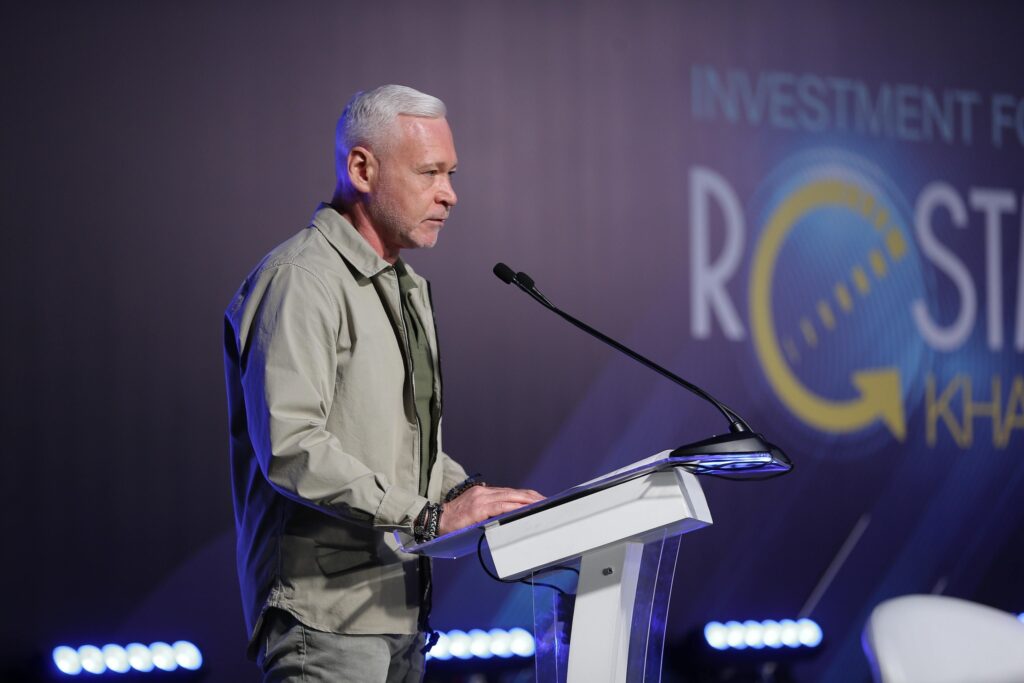

Kharkiv Mayor Ihor Terekhov noted that 500,000 displaced persons now live in Kharkiv, and many Kharkiv residents have returned from abroad and other regions, and as such people are a huge resource that investors can already use to start implementing reconstruction projects.
“Why is it important to raise funds now? Because Kharkiv has a strong potential – about 70 higher education institutions, including 17 universities, with about 300,000 students before the war. No other city in Ukraine has such a scientific potential. These are the future personnel. Kharkiv is also a powerful industrial center. The industry generated $4 billion in revenue in 2021. I am sure that we will generate even more after victory is attained. Kharkiv is also the IT capital of Ukraine. We have a clear vision of the future, an action plan, and we are working with the Norman Foster Foundation on what the city’s economy will look like in the future. I believe that it will be a city of creative industries. We will have Oleksiivka City, Lopan embankment, Science Park, a new shopping center at Pivdennyi Railway Station, Zhuravlivskyi Hydropark, modern transport (electric buses, municipal e-taxi), and modern residential neighborhoods. We have already developed these projects and encourage investors to come to the city,” said Mayor Terekhov.
The Kharkiv city authorities say they are ready to cooperate with anyone who is willing to invest in the development of the city: to discuss the terms of cooperation, connect to the city’s communications efforts, and be open and transparent. The head of the Kharkiv Regional Military Administration, Oleh Syniehubov, thanked everyone who is helping to rebuild the region and said he hopes that in the future there will be preferential lending for businesses operating in Kharkiv region.
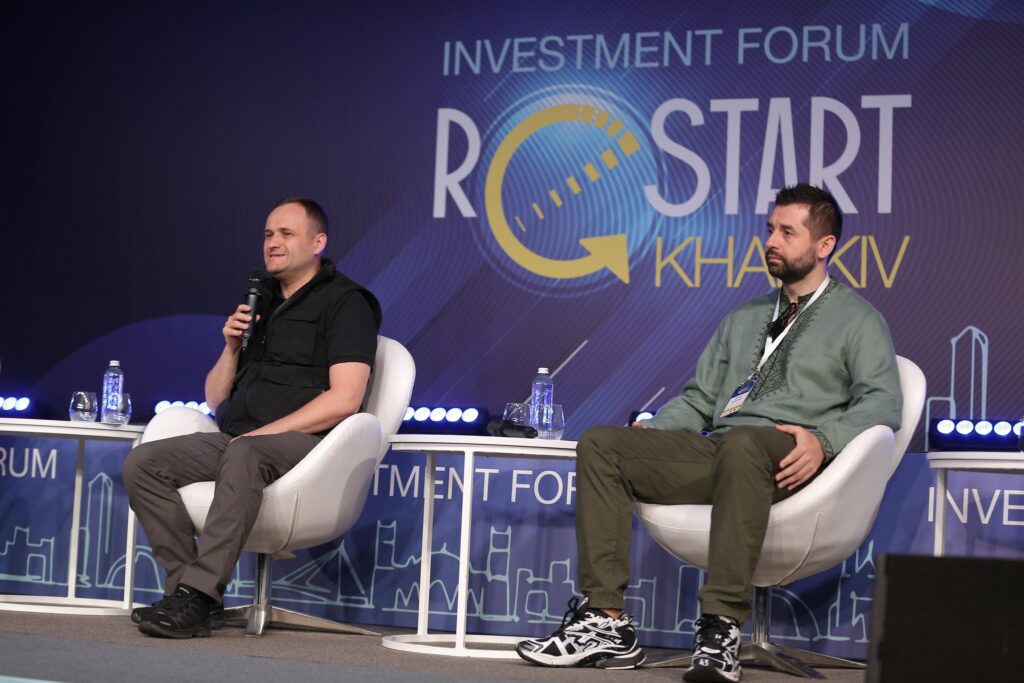

During the forum, Ukrainian MP David Arakhamia spoke about attracting investors and the attractiveness of Kharkiv:
“Given the geography, this is an attractive market for investors, but the fact that the city is near the border is a risk, because Russia is close by. Today we have three groups of investors. The first is the state, the second is private investors from Ukraine – people who are preparing to invest in their country, such as locals, entrepreneurs, and banks. The third group is foreign investors. Right now, for example, you can find a business that is worth $1. As soon as the war is over, it will be worth $3. When they announce Ukraine’s accession to the EU, the business will be worth $5-7. So, in my opinion, this is the best investment in the world – you can’t earn 700% in a few years anywhere else. Nowadays, communities are actively competing for investors, offering free land and counting consumers. I advise you to engage architects and build a concept for the future of Kharkiv, we can already build things that we would not have dared to do before the war.”
To insure investors, MPs are currently drafting a bill, said Danylo Hetmantsev, chairman of the Verkhovna Rada Committee on Finance:
“Kharkiv is a border city, we have to accept this, because the threat will not disappear. But in many countries of the world, people learn to live with this and use this potential. The government must cover the military and political risks that exist in the country. The Verkhovna Rada of Ukraine is currently considering a draft law to allow investors to insure their risks. This will make it possible to allocate money in the budget for these purposes. Grants from government, international organizations, and foreign private investors all create the preconditions for business development.”
Mr. Hetmantsev also noted that local taxes should be reformed to make them a source of income for the community and its development, noting the need to charge money not for 1 square meter of real estate, but for the value of the property:
“We need an inventory and valuation of real estate, as they can increase revenue in communities. About 50% of the property is assessed incorrectly or inadequately. The idea of transferring the military fee to the state budget is also being discussed. There is a certain misunderstanding in the communities, that they are planning to take this money away from them. There is an ongoing discussion about whether the money should be spent on paving the city or supporting the Armed Forces. The budget now includes a reverse subsidy for such communities. And speaking of recovery, let’s talk about money, because without it, neither the city nor the state can recover.”
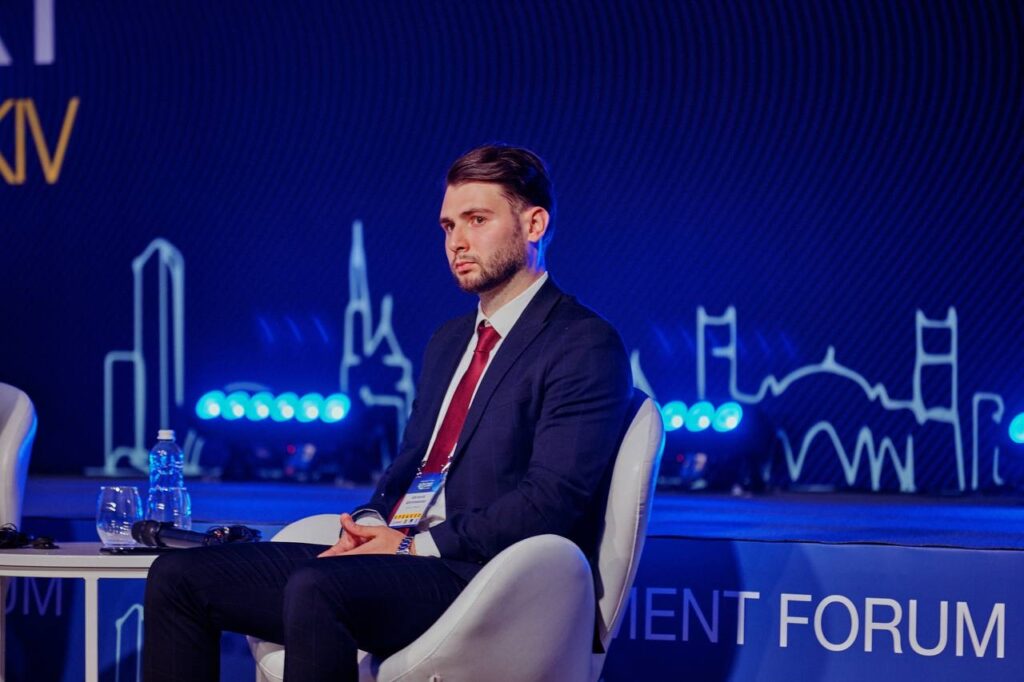
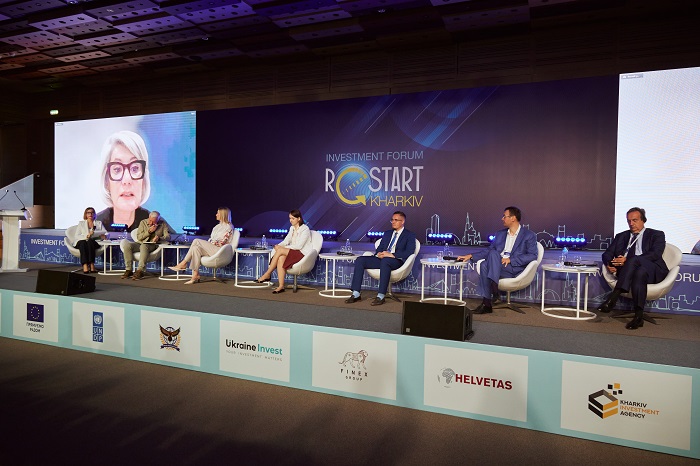
During the forum, USAID ERA Economic Recovery Coordinator Yevhen Shapovalov spoke about the ratio of risks to rewards for investors:
“In frontline Kharkiv, the formula is high risks equals high rewards. People return to Kharkiv, forming a large market and improving the quality of the city’s human capital. Nowhere else in Europe, with negative deposit rates and projected global economic growth of 3%, will you be able to double or triple your money in a short period of time.”
He noted further that
“Ukraine’s recovery process is now moving from quick projects to more sustainable and systemic initiatives. The state’s assistance should primarily be focused on developing a general legal framework. Insuring against military and political risks is extremely important. In addition to opening up access to the state fund for eliminating the consequences of armed aggression, the government should implement radically different policies aimed at deregulating and removing administrative barriers to dynamic economic growth.”
Overall, the forum speakers noted the importance of developing reconstruction projects now, during the war, and attracting various resources to restore Ukraine’s economy.
